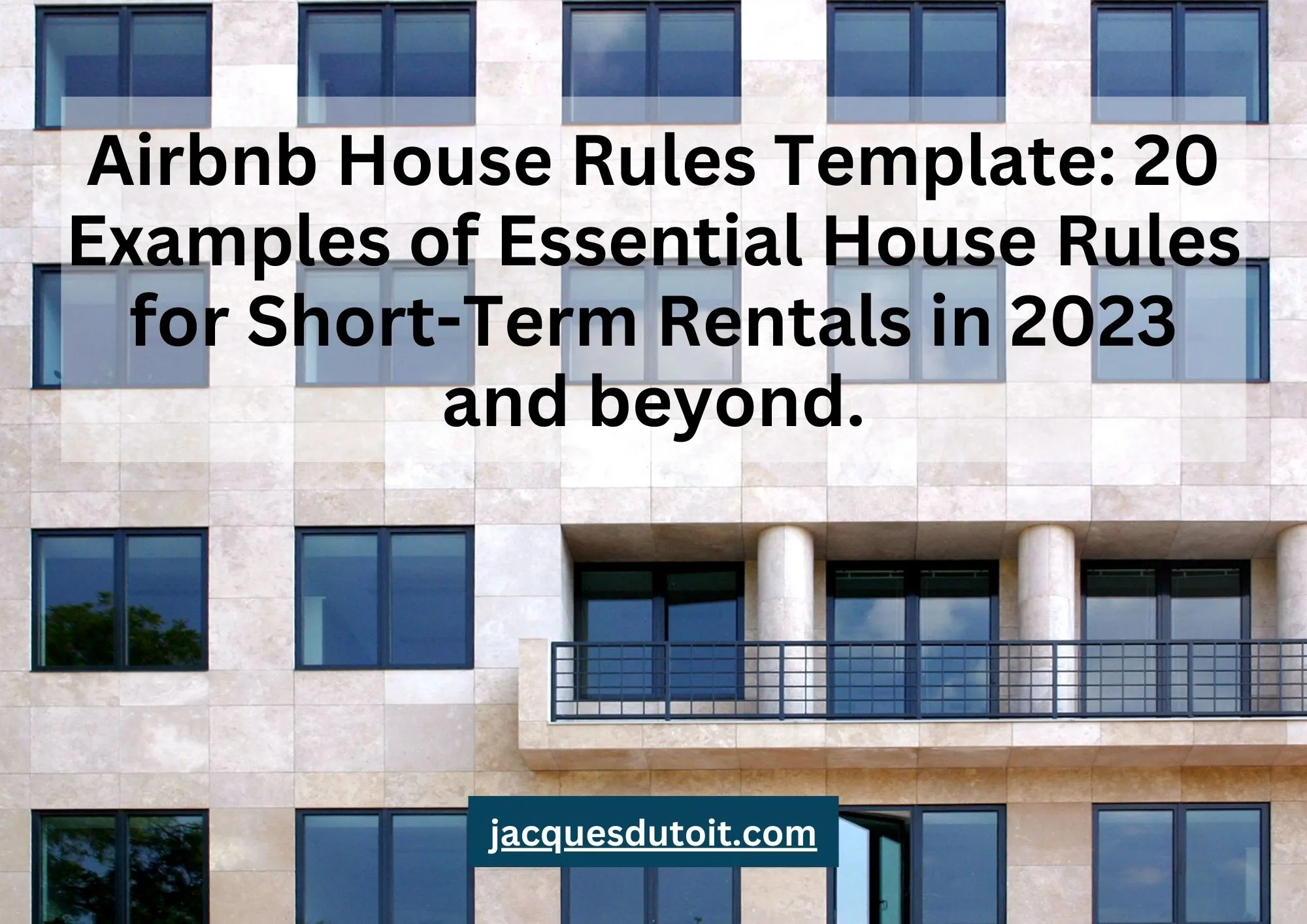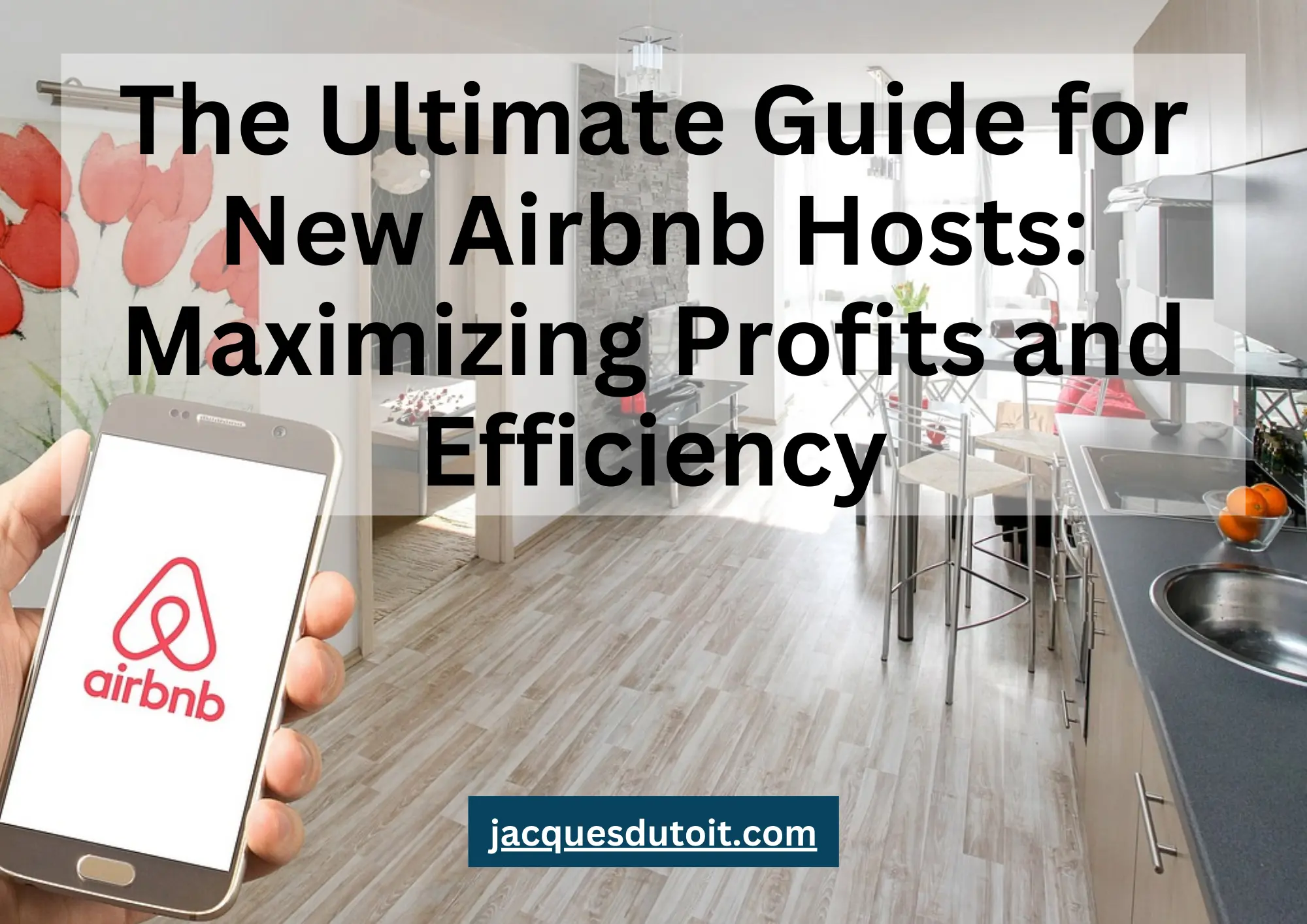In this blog post I want to share with you my personal journey of attempting to live for free (or as closely as possible in the beginning), using Airbnb, in one of the most expensive neighbourhoods in Cape Town, South Africa and then again in one of the best neighbourhoods in Buenos Aires, Argentina.
Backstory of trying to live for free
I’m originally from Pretoria and I started my first Airbnb property in Dec 2012 in Cape Town. This lead to a bunch of adventures in starting new ones, managing listings for others and many other service offerings related to the short term rental space. As you know, there are many ways to get started in the Airbnb game.
In 2017 I was ready for a move to Cape Town, as most of my family lived there, I was visiting more frequently and I started to fall in love with the mountain, ocean and way of life that many Capetonians follow.
I’ve always been of the opinion that I’d rather pay a premium to live somewhere that was close to work (so I had almost no commute), as well as being in close proximity to all the things I love like hiking, surfing and being in the outdoors. And this place for me was Sea Point on the Atlantic Seaboard.
Now anyone who is familiar with Cape Town knows that the Atlantic Seaboard has some of the highest rents in the country and my entrepreneurial spirit wanted to know if it was possible for me to live here without paying the full rent myself, all whilst having the freedom of not having a permanent live in roommate. This plan was also in line with my desire to reach FIRE by 40 and I knew that housing costs were usually the highest cost of one’s budget, so if I could slash this down, I could drastically improve my savings rate.
I got to work and started looking for apartments that had at least 2 bedrooms, one to two bathrooms (I didn’t mind sharing), proximity to the ocean and/or mountain and a garage, as I knew I’d want to store some toys like surfboards, bicycles and camping equipment. A bonus would be an extra parking and I found an exact match after a two week search!
I moved into this beautiful unit on 1 September 2017. The views drew me in, but the fireplace, wooden floors, high ceilings and tons of natural light sealed the deal.
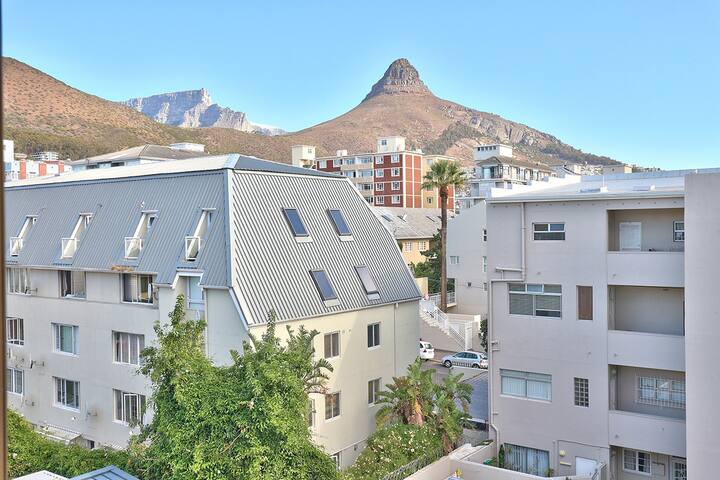
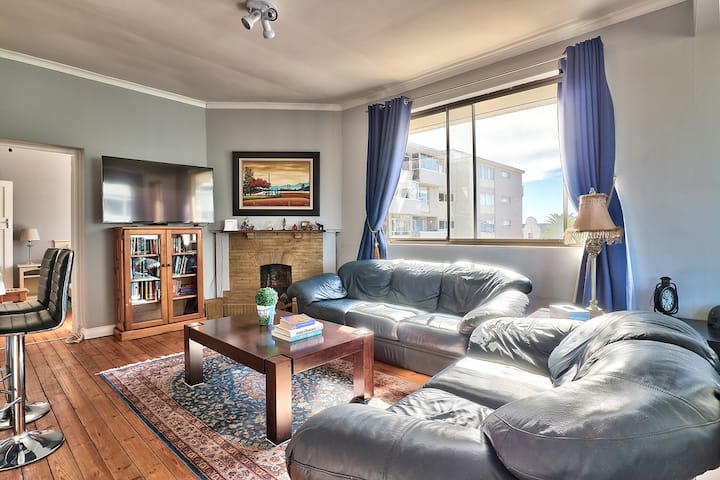
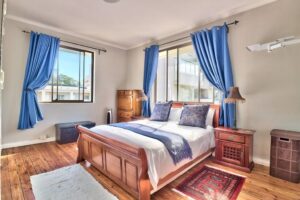
For the first few months, I wanted to enjoy Cape Town by living alone and just focusing on work and adventures. I officially started hosting on Airbnb in March 2018 and here’s my breakdown of my 2018 earnings of renting out the second bedroom off and on, as well as the entire place if I happened to travel for a weekend or out of town for extended periods, which in this year was only one weekend:

As you can see, I was able to cover on 27% of my rent during that first year. In short, this was a viable way to subsidise my rent without the shackles of having someone permanently in my space and to have friends and family over whenever it suited me. Naturally, I wanted to push this figure.
Here’s 2019’s breakdown:

Significantly better in terms of percentage of rent covered, but this was due to the R30 435.45 that I rented out the entire apartment whilst traveling. Room rental was also double, up from R29 817.71 to R58 266.39. So far so good!
hosting during the Pandemic
In 2017 I met a wonderful Argentinian girl through work and she visited me during March 2020, just as lockdowns hit, which meant she was stranded in South Africa for the time being and we decided to move in together.
After two months of heavy lockdown, we decided we needed a change of scenery and as luck would have it, I had been keeping my eye on the local property market and noticed that as per most places in the world, there were many high end Airbnbs that were standing empty. One day a great unit came across my desk and I acted immediately. As you can see below, it was quite the place.
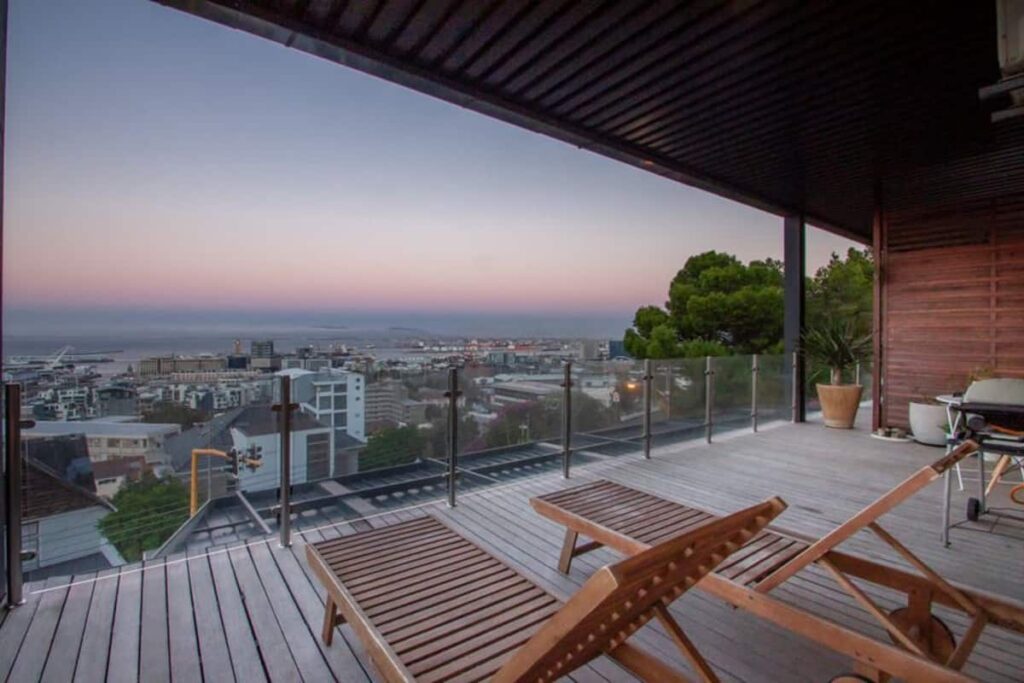
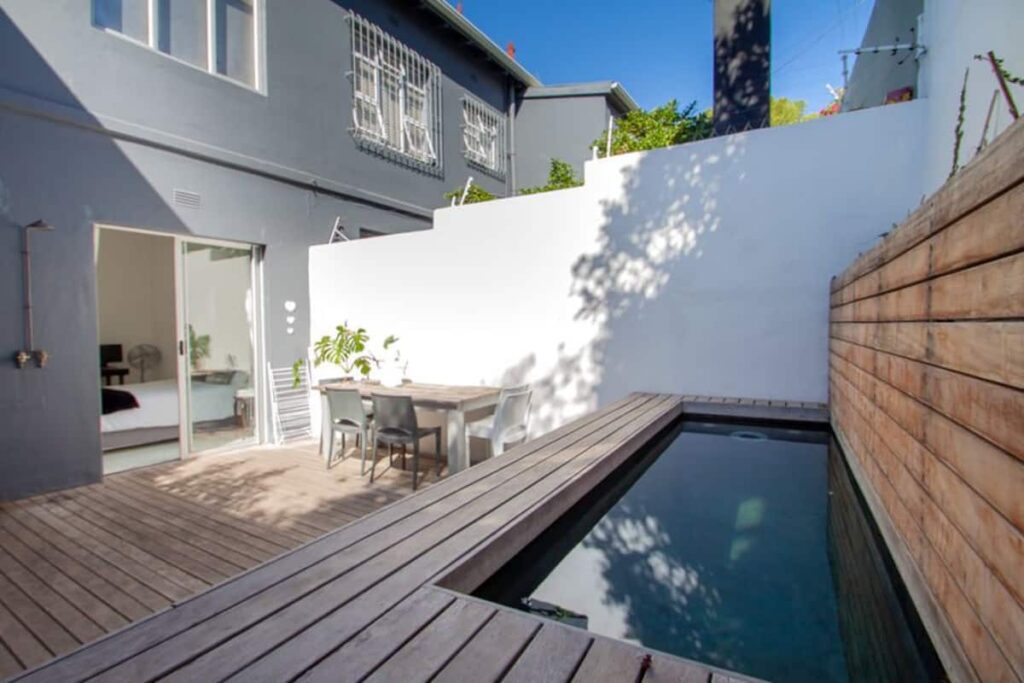
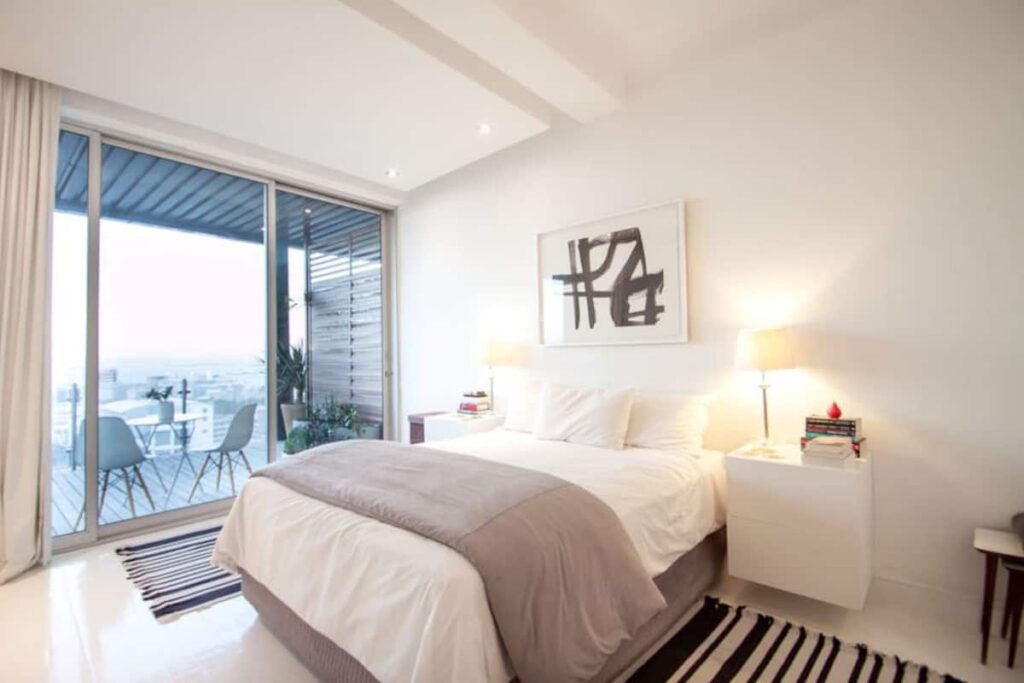
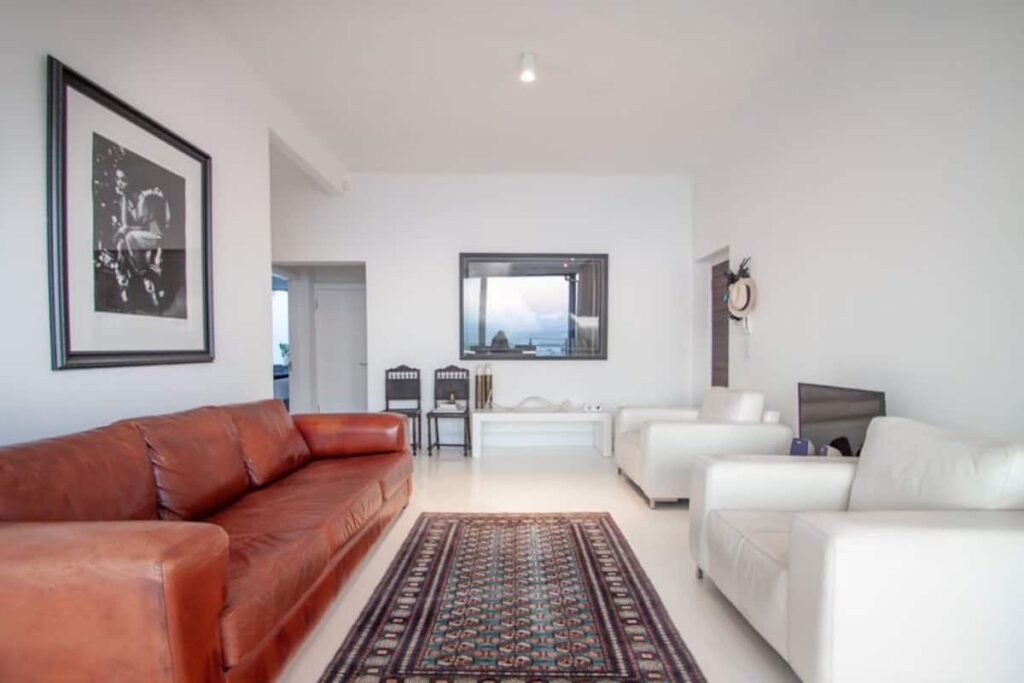
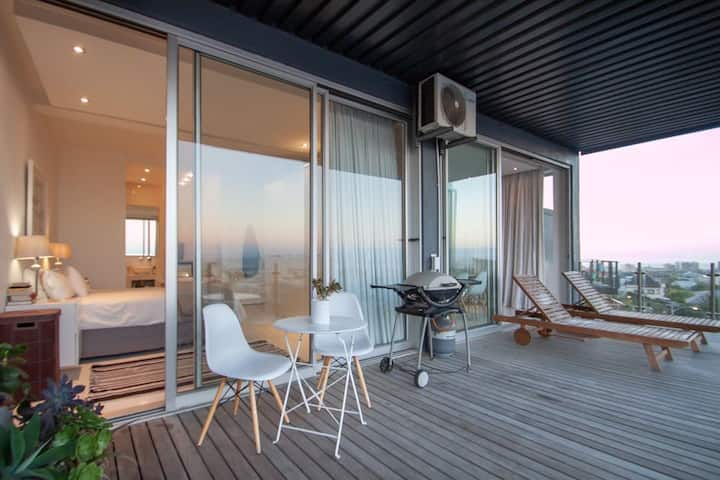
The unit was fully furnished with spectacular views, a pool and a safe parking spot in a great neighbourhood, with the mountain being its backyard. It was perfect and I was the first one to view it and immediately made an offer.
We moved the next day and I listed my entire place on Airbnb. We were both happy to pay the new rent and cover the shortfall on my place, should there be any. And due to lockdowns, there certainly was some pain.
Here’s the breakdown of that period:

moving to buenos aires
Whilst we enjoyed our new place, we decided that once lockdown restrictions eased, we’d move to Buenos Aires. My girlfriend hadn’t seen her family for quite some time and I was up for a new adventure. We decided to move for 3 years and then discuss returning to Cape Town and perhaps doing a 70/30 split between Cape Town and Buenos Aires respectively after that.
She had an apartment in Buenos Aires that we could stay in temporarily and shortly after arrival, we’d start looking for a larger place together, as I wanted some extra space with a home office and we wanted to create our own space together.
In August of 2021 we moved back to my old home and listed this new unit on Airbnb. We had built up a great relationship with the owners and I convinced them to rent the apartment to me with the intention of subletting it on Airbnb, using my past hosting experience as the motivating factor.
This meant that I would have two Airbnbs – my home and the new listing. My intention was for this new unit (or either unit) to completely cover my rent in Buenos Aires as I wanted to prove that I could live completely rent free with minimal effort.
We stayed at my place from 21 August 2022 until 31 October 2022 and we departed for Buenos Aires on 1 Nov 2022, where I was about to become a very remote Superhost for the first time.
We found this amazing place in Recoleta in Buenos Aires in a beautiful street (Avenida Alvear) that had a rooftop pool and amazing appliances.
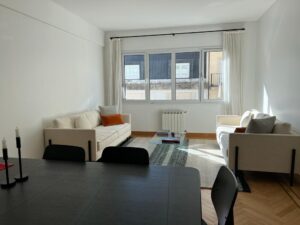
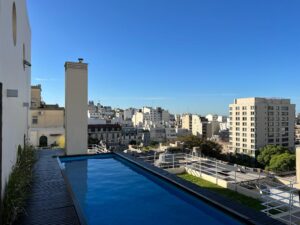
We moved in on 1 March 2022 and here’s how the rent stacked up against the earnings of the second unit.
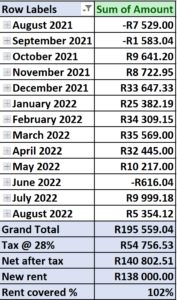
As you can see, I was able to live for free by covering my entire living costs in Buenos Aires, all with about 1 hour per week of work on my end due to the systems I had implemented over the years. I also employed a virtual assistant to bridge the gap with me being so far away and due to timezone differences – but this cost is already factored into the above calculation.
In all fairness, we were splitting the new rent 50/50, so I covered way more, but I wanted to illustrate that it could cover the entire rent and live for free as a couple or family.
The figures above are after ALL expenses, such as:
- Rent
- Utilities
- Laundry
- Consumables for guests
- Hosting fees
- All costs related to running a short term rental
- Taxes
Conlusion
I firmly believe that most people can take advantage of this hack with limited effort, as it’s entirely possible to automate most parts of this business. On top of that, I believe you can still provide a superior service to your guests, which further ensures the long term success of your listing, as well as superior earnings on your part.
That’s it folks. I hope you’re as excited as I am about the potential that Airbnb’s have to assist us to reach FIRE so much sooner by allowing us to live for free and cut down our largest expense in life.
Until next time!
P.S. Want more? Sign up below to receive my newsletter and be notified when new posts hit.


